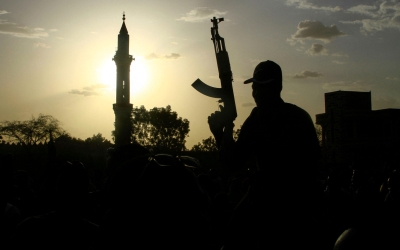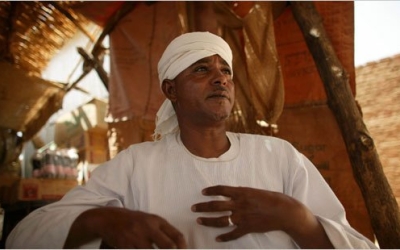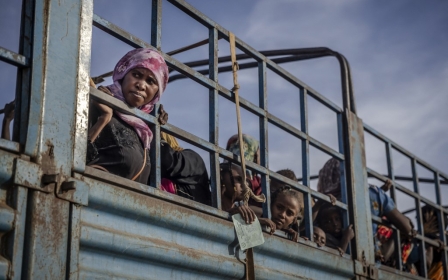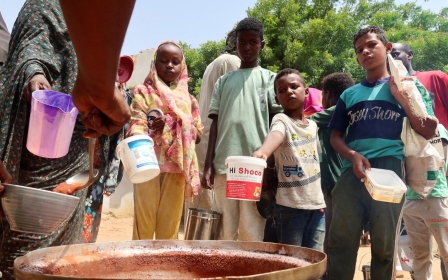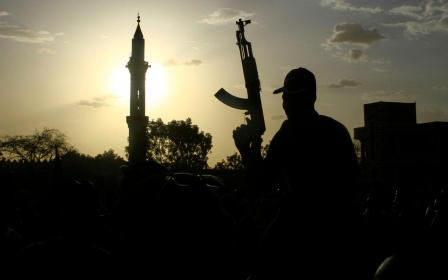Sudan: RSF fighters 'raped mothers in front of daughters', says report
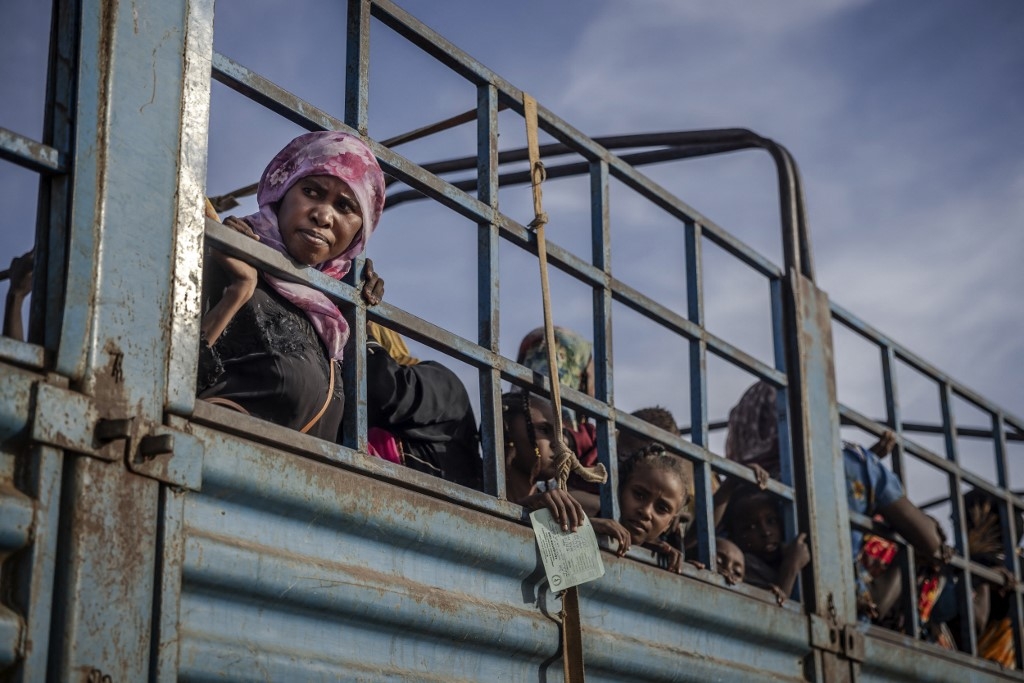
Medical workers in Sudan said the Rapid Support Forces raped women in front of their children and husbands, gang-raped girls as young as nine and abducted women in the capital Khartoum to rape them, according to a new report.
Human Rights Watch on Monday published a new report titled Khartoum is not safe for women that documented a litany of sexual violence towards women from both sides in the country's ongoing civil war in Sudan.
The rights group spoke to several medical providers, social workers, lawyers and volunteers in Khartoum, its sister cities of Bahri and Omdurman, who have been on the frontline treating women and children, including young boys and men, who have been raped or faced sexual violence at the hands of the RSF and Sudanese Armed Forces (SAF).
HRW, using interviews with healthcare providers, noted at least 262 survivors of sexual violence aged between nine and 60 years old.
The rights group said that researchers conducted 42 interviews from outside the country because they could not access the country due to restrictions and heavy fighting.
New MEE newsletter: Jerusalem Dispatch
Sign up to get the latest insights and analysis on Israel-Palestine, alongside Turkey Unpacked and other MEE newsletters
Both sides stand accused of bombing medical facilities and blocking access to urgent medical care for the civilian population who stand in the crossfire of the civil war.
One volunteer described a case of an RSF fighter who raped a 50-year-old woman in Omdurman, an area that was under the control of the RSF in the early stages of the war.
The volunteer said the woman had told the RSF to "rape her instead" of her two daughters, who were in their early twenties, after they raided their home. RSF fighters raped the mother and beat up the daughters.
Another healthcare worker in Khartoum said they received a case of a "mother and her four daughters who were raped in front of their father and brothers".
The volunteer added: "They were not able to leave their home as the RSF placed them under some sort of house arrest. These women were raped repeatedly for days. One of the daughters was pregnant when they were able to reach us."
Soldiers from the SAF also stand accused of gang rape of women and girls in Khartoum.
The climate of fear surrounding sexual violence has led midwives in Sudan to observe a constant state of anxiety faced by women in Khartoum.
One woman told HRW that the situation had become so bad that she now sleeps with a "knife" under her pillow because of fear of rape and imprisonment from the RSF.
"We are afraid all the time from RSF raids into our homes. We can’t sleep from this fear. Daily, there is a raid on a house; they try to rape women," one woman told HRW.
Uptick in violence
Service providers told HRW that a significant proportion of the sexual violence survivors who they offered help to in Khartoum were girls under the age of 18, including a nine-year-old child.
One psychologist documented 25 survivors between May and October and that at least "80 percent of the cases... recorded were aged between 12 and 18 years".
The psychologist added that most of the survivors told the RSF that "they were married and not virgins, because they thought this might protect them from rape".
Rescue volunteers who spoke to HRW said they were also raped while trying to help survivors of sexual violence in Khartoum.
The uptick in cases of sexual violence has also led many women and girls to approach hospitals for abortion services, but they struggle to access them due to medical professionals "being unwilling, ill-equipped or too scared to provide abortion care."
Volunteers who spoke to HRW also noted that legal hurdles stopped many survivors from reaching out to abortion services, with some telling activists they faced or feared intimidation at the hands of the police when trying to report a rape by SAF forces.
Others spoke of the cultural factors and lack of privacy that prevent many women to consider obtaining an abortion legally due to doctors either refusing to give them the procedure or the lack of confidential spaces within medical facilities to obtain one.
One doctor in Khartoum described a "major crisis in training health personnel to deal with cases of sexual violence" and "survivors fear that privacy in hospitals will not be protected... there is a lack of private rooms to examine survivors.
"In public hospitals, the survivor must talk in an open room with a number of doctors and patients about what happened to her.”
This report builds upon previous work done in November 2023 by the United Nations on reports of widespread sexual violence and how it was used as a tool of "war to subjugate, terrorise, break and punish women and girls as a means of punishing specific communities targeted by the RSF and allied militias".
'There is a lack of private rooms to examine survivors'
- A doctor in Khartoum
Sudan's Foreign Minister Babikir Elamin denied the report's findings and said that as far as the "Sudanese Armed Forces are concerned, this report contains unsubstantiated allegations that have obviously never been cross-examined or put forward to SAF to respond to.
"We categorically deny the defamatory suggestion by the report’s author that SAF or the government of Sudan condones sexual violence at any time.
"Equally, there is no truth in accusing SAF of targeting healthcare providers. The report offers no evidence to prove this accusation."
Currently, most working hospitals and health facilities, including around 400 out of 540 government hospitals, are confined to areas controlled and protected by the SAF.
“Contrary to the claims in the report that SAF blocks delivery of medical supplies, it is SAF who protects, guards and often undertakes delivery of these supplies, including using air dropping,” Elamin added.
The RSF rejected the claims made by HRW in its report and said it does not occupy hospitals or medical centres in Khartoum. It did not comment on claims or provide evidence it had investigated claims of sexual violence by its forces.
Middle East Eye delivers independent and unrivalled coverage and analysis of the Middle East, North Africa and beyond. To learn more about republishing this content and the associated fees, please fill out this form. More about MEE can be found here.


